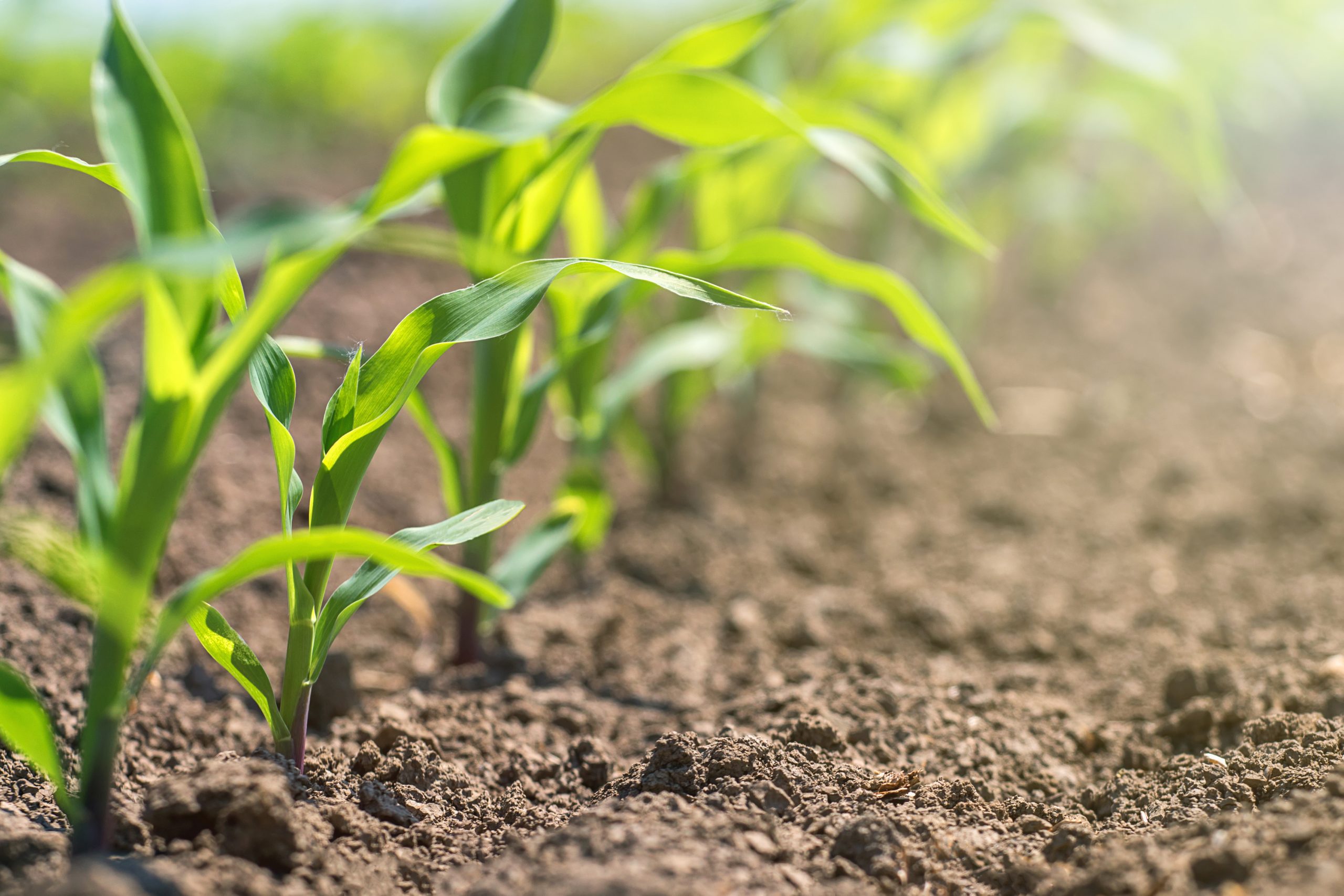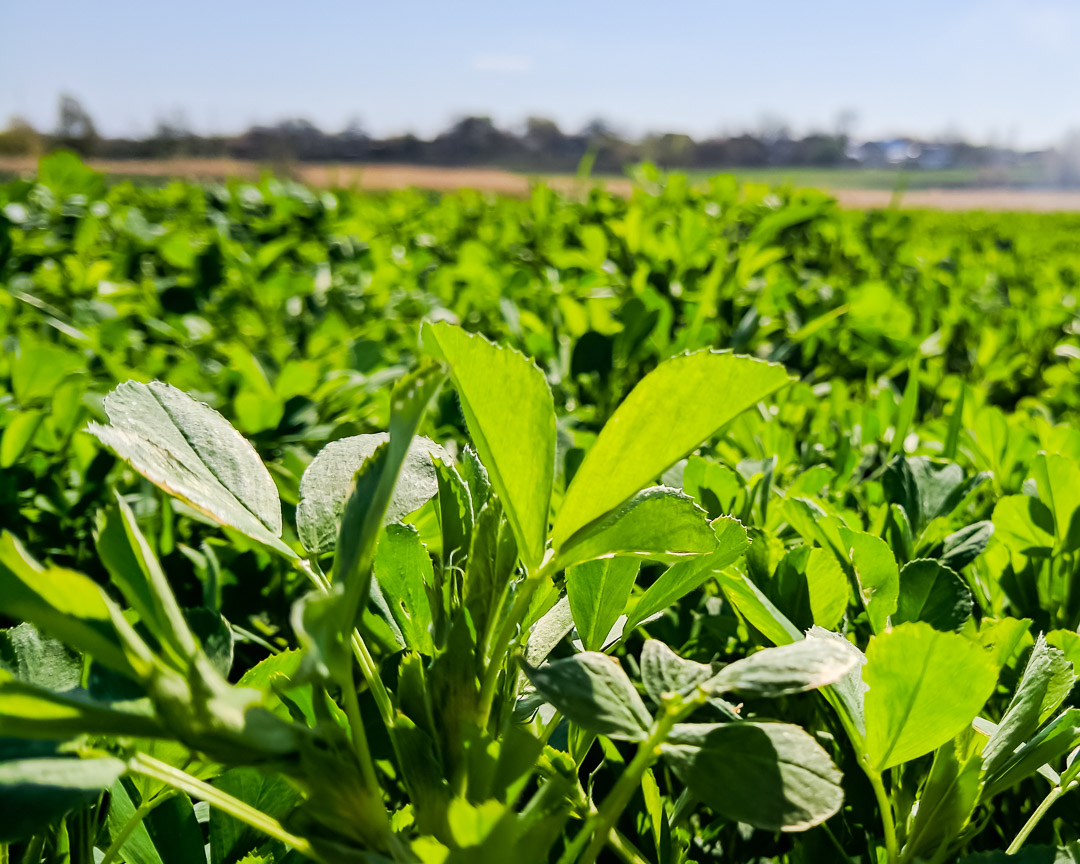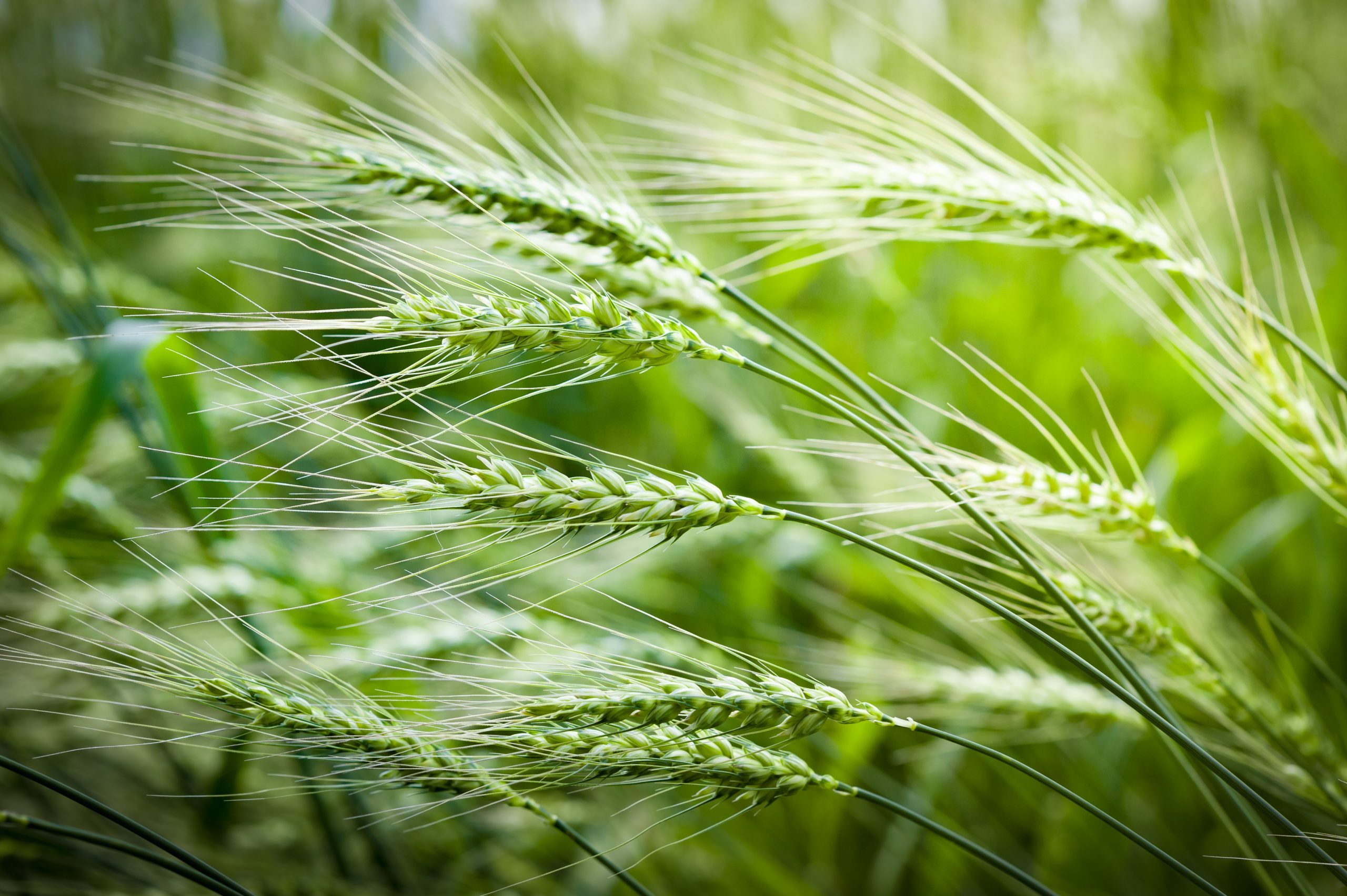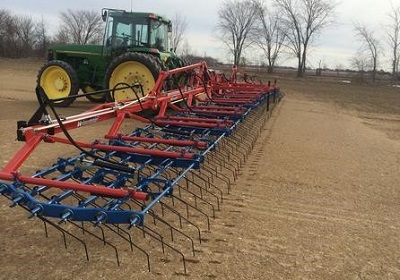- Published On: February 2, 2020
- Author: Bryce Irlbeck
Growers understand that switching from a conventional farming system to organic means giving up certain products like genetically modified seed and synthetic herbicides.
But that doesn’t mean organic farmers do not have crop input options. In fact, aside from nitrogen fertilizers and herbicides, most conventional inputs can be found in organic forms, and through use on our own organic operations, we’ve found they can be highly effective.
Here are some tips on finding the right crop inputs for your operation, and how to use them effectively.
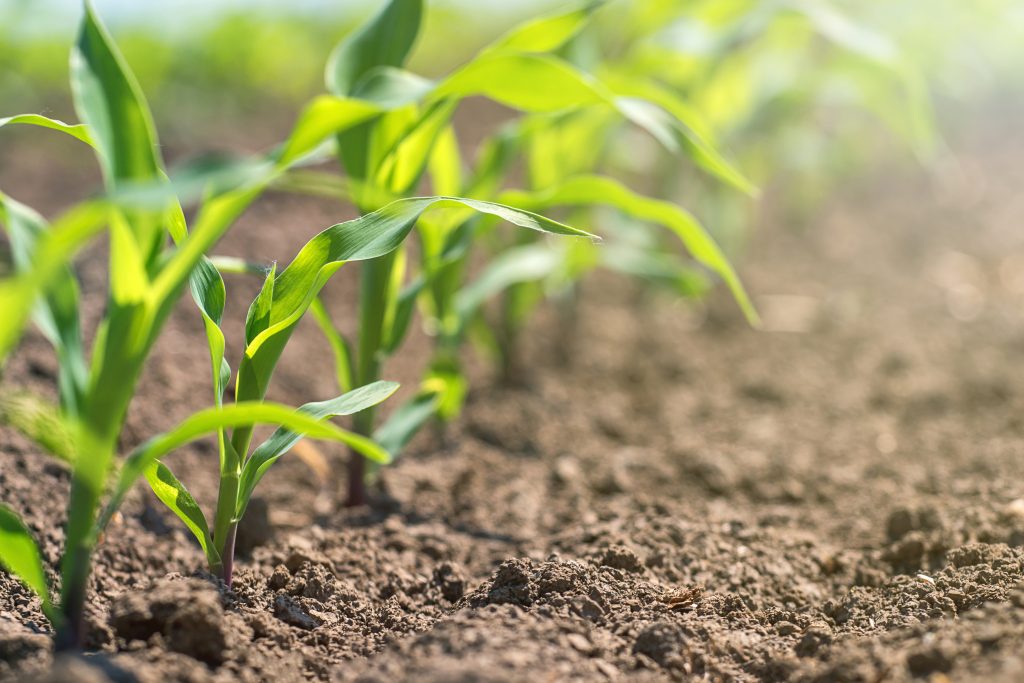
Use on an as-needed basis
One of the key differences between using crop inputs in conventional farming vs. organic is that organic farmers need to be diligent on why they need them, when they need them, and where they get them.
Conventional systems often focus on increasing their input budget in hopes it will increase bushels, and in turn, profits. But even with $9-bushel organic corn, there’s no guarantee that adding expensive inputs to is going to provide a return on investment (ROI). Oftentimes with organic inputs, the ROI can be hard to see.
In organic farming, we want to instead focus on creating a plan that reduces the number and amount of inputs needed, primarily through a sound crop rotation that has the right level of diversity.
There are two basic inputs every organic farmer needs: seed and litter/manure. The rest can be used on an as-needed basis, as determined by soil tests, diligent observation, and field data.
Organic input options
Of course, there are instances where organic inputs are needed. We advise farmers to scout their fields for any issues, along with taking soil and tissue samples to determine any nutrient deficiencies.
While manure (plus rotation) can meet the bulk a crops nutrient needs, sometimes additional fertilizer is a necessary to provide supplementary phosphorus (P) and potassium (K). Forms of dry potassium, phosphorus, calcium, sulfur, lime and micronutrients exist in a variety of organic forms throughout the country, so each operation will need to evaluate what effective and cost efficient options are available.
There are also several organic foliar nutrient options. But before using these products, we advise farmers to analyze what you want to achieve and whether specific products will really meet your desired objective. For instance, if you’re thinking about applying a nitrogen product that costs $8 a pound and applying one pound per acre, it’s tough for me to believe that is going to do much for your operation.
The same logic also applies to organic biological and/or microbial products on the market. While I believe there is validity to the concept of building soil biology, many of the products do not have adequate local testing. If there is a product you are interested in trying, take 10 acres and test it before you spend a lot of money and apply it to whole fields. It goes back to only using inputs when necessary to protect our bottom line
Proving a need for crop protection
Using fungicides and insecticides in organic systems is also different from conventional farming. You are not allowed to apply blanket coverages, as you are required to prove a need for these inputs. However, it usually isn’t difficult to provide adequate proof.
In cases where you’d like to use organic crop protection inputs for preventive purposes, you will need to show a need for it (for example, if there’s a history of issues in the field).
The most commonly used organic fungicides for Midwest farmers are Regalia and Procidic, while PyGanic is a common organic insecticide.
Shop around
When shopping for organic crop inputs, don’t purchase the first price you see. Shop around, as oftentimes there are huge differences in organic prices in the market, whether it’s chicken manure, fungicide, or seed.
One benefit of working with AgriSecure is our insight into organic crop inputs. While we may not know the best product for every situation, we have a lot of insight from our own experience and working with other organic farmers that can help narrow down the decision-making process.
Our partnership with FBN also makes it possible for organic farmers to purchase crop inputs, often at lower prices. AgriSecure doesn’t sell inputs, but we work with FBN to find out what farmers want, source it and provide a good price on it through FBN Direct. Because organic farms are few and far between, many brick and mortar stores may need to charge more to carry and deliver these products. Shopping online through FBN Direct gives organic farmers access to fair, competitive prices on inputs delivered straight to their farm.
If you’re interested in purchasing inputs through FBN Direct, or would like some guidance on organic crop inputs, we can help. Contact AgriSecure to learn which organic crop inputs may be the best fit for your operation.
Related Articles
-
3 Smart Reasons to Transition with Alfalfa
We put a lot of emphasis on the transition period with organic row crops. After all, a smart transition will set you up for long term success. But a poor one? That could result in out-of-control weeds, depletion of your soil’s nutrients, and a tough road to profitability. Luckily, an organic transition with alfalfa can […]
-
Cover Crops Bring Big Benefits to Organic Farms
We always stress the importance of a diverse crop rotation to achieve long-term organic success. But what if market opportunities for organic crops in your area are limited? How can you diversify your rotation with just a few cash crops? Answer: Cover crops. Even though you don’t sell them like cash crops, they can still […]
-
7 Tips for Success After Organic Transition
It’s been 36 months since you started the transition process, and now you’re entering your first growing season as a certified organic farmer. While this means finally being able to reap those high premiums, it also means that any mistakes made are going to cost more. By following these 7 tips, you can reduce the […]
-
AgriSecure Shares Transition Tips at Minnesota Organic Conference
AgriSecure account executives Kenn Jenkins and Pete Kapustka will share the company’s perspective on how to manage the transition process into organic production at the 2020 Minnesota Organic Conference. Becoming an organic grower requires a field not having any prohibited substance or genetically modified crops on it for 36 months, and that time period can […]
-
Long-Term Organic Success = Rotation, Rotation, Rotation
You’ve heard the saying, “location, location, location.” The real estate mantra is used to remind people that where a property is located is often the most important factor in its value. In organic farming, the same can be said about rotation. Having the right rotation in place is critical for year-to-year success and the long-term […]
-
5 Critical Factors for Weed Control in Organic Row Crops
If you’re new to organic production, or are considering it, one of the biggest concerns you probably have is weed control. Without the use of herbicides, you may be wondering whether weed control is even possible. While it does take a higher level of management, weed control in organic systems is possible. And you can […]
-
4 Keys to Early Season Organic Success
Given how often things change in farming, some consider plans to be obsolete. But for large-scale organic producers, developing a plan is key to avoiding pain points that can hurt your bottom line. And when things change, as they often do, a plan can help determine your next best course of action. To develop an […]
-
AgriSecure Hosting Organic Field Day
AgriSecure is hosting an Organic Field Day near Manning, Iowa, on June 28, 2019. The event will cover how a diverse cropping rotation can deliver both economic and agronomic benefits to transitioning and organic row crop farms in the Midwest. Bryce Irlbeck, AgriSecure Founder and Owner of B&B Irlbeck Farms, will review how crops such […]
Get in the know
Our newsletter, it’s a quick read. You’ll get industry news plus all the latest organic insights. Who doesn’t want that?
